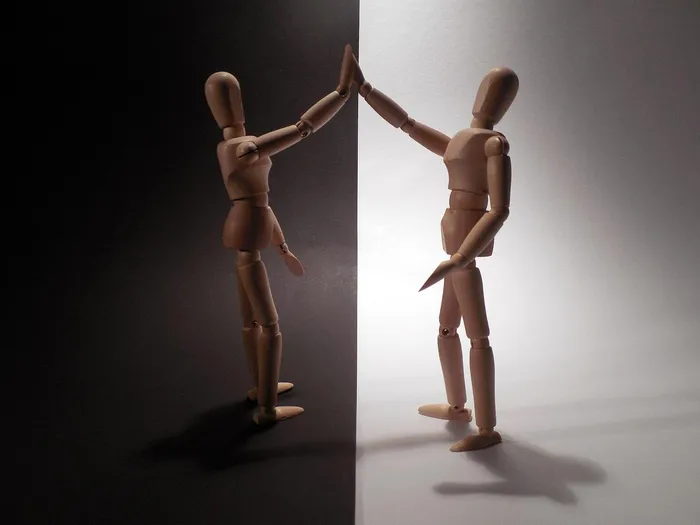
In the wake of a controversial podcast’s derogatory remarks about Coloured people, public outrage has reignited conversations about the lingering scars of apartheid. But what if we considered a reconciliation rooted in both accountability and open-handed connection.
Image: succo from Pixabay
WHAT a colourful week we’ve endured. Since the recent Open Chats podcast furore, people have been a bit touchy. The backlash on social media following the degrading comments on the show about Coloured people has been severe!
Suddenly, battle lines were drawn, threats were made, camps were formed, and everywhere there were those who were determined to support the “us” and reject the “thems”. It’s like we have gone back to square one!
It’s as if Apartheid really did a number on us; apparently there are still pockets of resentment long after its supposed demise. It’s as if the spirit of Apartheid may not have been effectively exorcised.
Consider: The purpose of that system was to maintain one group’s rule and create racial segregation. Those at the top, in the minority, knew that if the majority joined together, they would be an unstoppable force. So what did those in power do? To put it bluntly, they sub-divided the majority into smaller pockets and treated them unequally, so that they would fight over the scraps.
That’s “genius” in a sinister way! Ultimately, in simple terms, the goal was to enforce a strict social hierarchy where one group held all the power and privilege.
And this is what confused everyone, it seems. Because when the system was supposedly dismantled, there was less of a reconnection of people, and more of a clamouring for those positions of power and privilege.
I realise that racial segregation is a sore point, and sweeping declarations about it could inflame tensions. But we need to realise that once there is brokenness, there are no pain-free routes to restoration. You cannot ignore the demons; we have to face them … not as segregated groups pointing at and blaming each other, but together, as a nation. Even if we consider “them” to be oppressive and evil.
In her book, Revolution and Equilibrium, written in 1968, Barbara Deming suggests something along these lines when she addresses the anger of the oppressed in the face of the oppressor.
Deming writes: “With one hand we say to one who is angry, or to an oppressor, or to an unjust system, ‘Stop what you are doing. I refuse to honour the role you are choosing to play. I refuse to obey you. I refuse to co-operate with your demands. I refuse to build the walls ... With this hand, I will even interfere with the wrong you are doing. I want to disrupt the easy pattern of your life.’ ”
Sounds pretty militant, doesn’t it? Well, here’s where the twist comes. She continues: “But then the advocate of nonviolence raises the other hand. It is raised outstretched – maybe with love and sympathy, maybe not – but always outstretched …
“With this hand we say, ‘I won’t let go of you or cast you out of the human race. I have faith that you can make a better choice than you are making now, and I’ll be here when you are ready. Like it or not, we are part of one another.’ ”
Maybe that’s the lesson we keep missing. Apartheid may have ended on paper, but it left us with suspicion, division, and the comfort of choosing sides. Deming’s “two hands” remind us that anger has its place – but so does the willingness to keep the door open. We can’t undo the past, but we can decide whether to keep replaying it or start writing something better.
Or consider this quote: “In the end, reconciliation is a spiritual process, which requires more than just a legal framework. It has to happen in the hearts and minds of people.” – Nelson Mandela.
Related Topics: